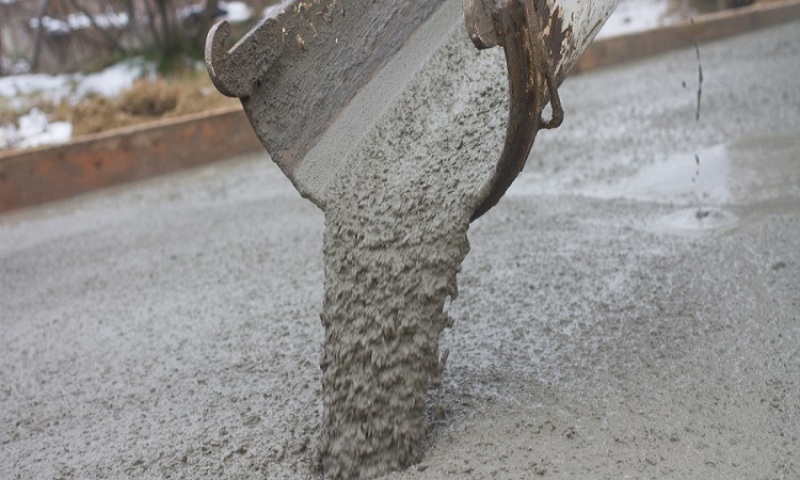Concrete is one of the prime constituents of any construction project. Concrete Quality Testing Services Edmonton helps to manage the concrete evaluation for coring, weathering, and other challenging conditions. Central Material Testing takes core samples from concrete structures that are required for an inclusive assessment of the structural performance and durability of the structure. We offer various types of compression and other tests on core samples for assessing strength and quality control for concrete. Moreover, concrete quality testing services Edmonton help in bringing coring benefits to the table by taking a precise procedure of testing with standardized tests such as ASTM C42 and ACI 318. Central Material Testing is an Edmonton-based company offering material testing services in a reliable manner.
Get to Know About Concrete Coring and How Does It Work?
Concrete coring or drilling is the process of eliminating a concrete cylinder from a building structure. Major concrete coring applications are drainage, utility holes, maintenance holes, structural testing, and HVAC applications. Central Material Testing uses concrete coring for both diagnostic testing for Concrete Quality Testing. We use a diamond cutting drill to cut a perfectly round hole in any concrete structure for concrete coring on walls, ceilings, or floors for the perfect evaluation of the concrete coring.
The process is dust-free, low-noise, and non-percussive making it perfect for cutting. Holes can be made at any angle either vertical or horizontal with the diamond installed in the steel tube. We can use hydraulic or electric rigs for drilling in delicate locations or confined spaces. Our experts cool the cutter with water to lessen friction. When the coring process is complete, we remove the pellet, leaving a faultless hole with no superficial damage or aftercare requirement.
Resolve Concrete Coring Challenges with Concrete Quality Testing Services Edmonton
Structural concrete coring comes with certain challenges. Central Material Testing offers concrete quality testing services Edmonton to make coring more efficient for critical evaluation. However, the quantity and the location of cores should be designated such that they characterize. The strength distribution within the structure. The removed cores should also be an accurate representation of concrete quality. It is harmless to say that growing the number of cores can carry a more realistic distribution of strength within the concrete structure. However, this can leave weaker points in concrete. Environmental conditions also play an important role in concrete quality testing services Edmonton and in selecting the location of cores.
Concrete Quality Testing Material Testing Services Edmonton evaluates the structure under service loads where the minimum strength and maximum stress coincide for taking out the cores. When the structure is highly reinforced, concrete coring can considerably affect the integrity or structural performance even in critical conditions. Concrete coring can leave ugly scenes on the structure. The site of cores can be accustomed to decrease the impact on aesthetic features. To deal with the durability concerns protection against radiation and permeability issues can be covered.

Benefits of Concrete Coring Evaluation
Concrete evaluation with Concrete Quality Testing Services Edmonton provides priceless information about a building structure. Concrete coring can also be employee as a means of quality control when situations go wrong with concrete quality testing services Edmonton or the curing process. However, the measurement of compressive strength is the prime aim in most cases. Concrete cores can offer precise information about the durability of concrete.
Cores can be appraise with concrete quality testing services Edmonton to determine the density of concrete. Moreover, evaluates the water absorption of concrete which can provide information about the porosity within the concrete and the interconnectivity of pores. Central Material Testing also evaluates the bulk electrical resistivity of concrete. Detailed information about the concrete resistance against penetration of chloride ions into concrete. Last but not least, cores and hole can be used to estimate the visual condition of concrete defects, such as voids, cracks, and honeycombing.
Disadvantages of Concrete Coring
Cores from concrete structures have certain disadvantages, including weak points within the building elements. The location of cores is generally repair by standard high-strength patch repair materials that have adequate strength to check durability performance. Cores can loss the structural performance of the column, exclusively if the coring damages the existing rebar. The selection of proper core locations can be very subjective. The experts at Central Material Testing perform concrete quality testing services Edmonton with expert engineers or technicians who do not compromise between the number of cores. Intervention to the structure, and the safety of the structure.
Dimensional Accuracy for Concrete Coring Testing in Edmonton
The purpose of concrete coring is to evaluate the compressive strength of concrete needs dimensional accuracy. The minimum diameter of the concrete core should be three times the nominal maximum aggregate size. However, different codes and standards set varied values for the least diameter of concrete cores, ranging from 75 mm to ideal 150 mm. However, a 100 mm core is a real size in best structure inspections. Moreover, the accuracy of cores for strength decreases when the ratio of diameter to nominal maximum aggregate size drops. Most standards refer to Height/Diameter of 2.0 as the standard ratio for structural cores. The precision of the correction factors drops as the H/D decreases.
Central Material Testing has upgraded with the recent developments in the NDT methods that can be used to increase the process of concrete coring. The number of cores, location of cores, and interpretation of results. Ground Penetrating Radar (GPR) and Combine Methods (Ultrasonic Pulse Velocity + Rebound Number) can be used to calculate the compressive strength of concrete. The combination of these two procedures can cover the insufficiency of each individual test to improve the accuracy of strength prediction.
Central Material Testing has several years of experience with material testing in Edmonton. We offer concrete quality testing services Edmonton with national and international accreditations to make your construction projects reliable and resilient. Get the quotation for your testing services with us with affordability and convenience.



Leave a Reply